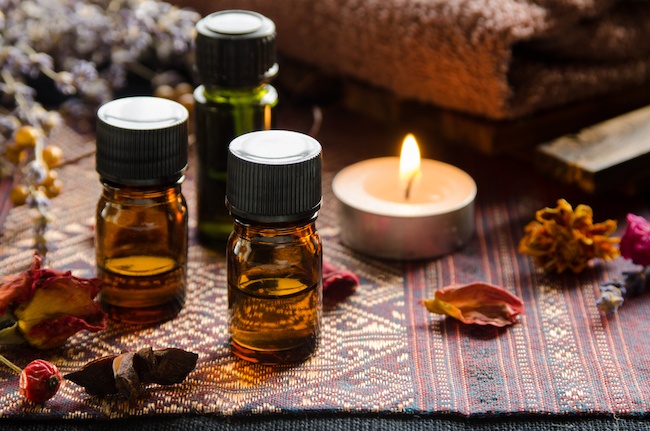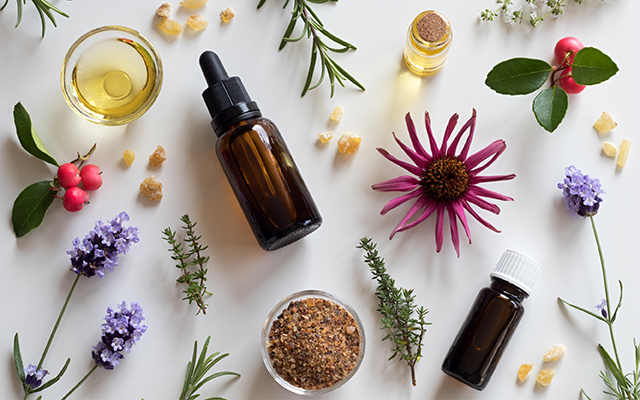Unveiling the Power of Aromatherapy: Aromatherapy, an ancient practice that taps into the therapeutic properties of aromatic plant extracts, has stood the test of time as a powerful tool for promoting physical, emotional, and mental well-being. The use of essential oils in aromatherapy dates back thousands of years and continues to be embraced today for its holistic approach to healing. In this article, we will delve into the profound effects of aromatherapy, exploring its benefits, methods of application, and how it has become an integral part of modern wellness practices.

A Fragrant Journey through History
The roots of aromatherapy can be traced back to ancient civilizations, including the Egyptians, Greeks, and Chinese, who discovered the medicinal properties of aromatic plants. Essential oils derived from flowers, leaves, roots, and resins were used in religious rituals, healing practices, and cosmetics. Over the centuries, knowledge about aromatherapy spread across continents, leading to the emergence of diverse techniques and applications.
How Aromatherapy Works: The Science Behind the Scents
Aromatherapy operates on the principle that the inhalation and absorption of essential oils can influence the limbic system, the part of the brain responsible for emotions, memory, and motivation. When inhaled, the aroma molecules stimulate the olfactory system, triggering responses that affect mood and emotional states. Additionally, when applied to the skin, essential oils are absorbed into the bloodstream, carrying their therapeutic benefits throughout the body.

Therapeutic Benefits of Aromatherapy
Aromatherapy offers a wide range of therapeutic benefits, making it a versatile and complementary form of treatment. Some of its notable benefits include:
- Stress Reduction and Relaxation: Lavender, chamomile, and ylang-ylang are renowned for their calming properties, promoting relaxation and reducing stress.
- Improved Sleep Quality: Essential oils like bergamot and cedarwood help to soothe the mind and promote a restful sleep.
- Easing Anxiety and Depression: Citrus oils such as lemon and sweet orange have uplifting effects, aiding in alleviating symptoms of anxiety and depression.
- Boosting Mental Clarity: Peppermint and rosemary essential oils enhance mental focus and concentration.
- Pain Relief and Muscle Relaxation: Eucalyptus and ginger oils possess anti-inflammatory properties, aiding in relieving muscle tension and pain.
Methods of Application
Aromatherapy offers various methods of application to cater to individual preferences and needs:
- Inhalation: Diffusers, steam inhalation, or direct inhalation from a tissue are popular methods to enjoy the aromatic benefits.
- Topical Application: Diluted essential oils can be applied to the skin through massage, compresses, or added to skincare products.
- Bathing: Adding a few drops of essential oil to a warm bath can create a soothing and aromatic experience.
Aromatherapy in Modern Wellness
In recent years, aromatherapy has experienced a resurgence as part of holistic wellness practices. From spas and wellness centers to healthcare facilities, its integration into various settings speaks to its growing popularity. The rise of aromatherapy diffusers and essential oil blends has made it accessible for home use, allowing individuals to create personalized aromatherapy experiences.
Conclusion
Aromatherapy remains an enchanting journey through the scents of nature, offering a host of therapeutic benefits for the mind, body, and soul. With its rich historical legacy and proven efficacy, aromatherapy has rightfully earned its place in modern wellness practices. As we continue to discover the healing power of aromatic plant extracts, let us embrace the aromatic symphony of essential oils and unlock the true potential of aromatherapy for a balanced and harmonious life.

